Carrie and Adam Mussell celebrated National Indigenous Peoples Day by opening B.C.’s first Indigenous-owned licensed cannabis retail store.
As co-owners of the Kure Cannabis Society, Carrie and Adam spent months preparing for the June 21 re-opening of their former store, located on the Skwah First Nation reserve in Chilliwack. They closed last October so they could apply for a government licence as a legal cannabis business.
Not only did they receive the first Indigenous-owned retail licence in the province, they also landed the first non-medical retail licence in the Fraser Valley.
“We’re pretty proud of it,” said Adam, who is a councillor on the Skwah First Nation council. “Being the first Native and the first one to have [a licence] on Native land is pretty cool.”
Carrie and Adam said understanding and implementing the licensing rules was time-consuming as they spent over six months navigating the application. But it was also challenging for provincial authorities implementing their regulations on reserve land for the first time.
“It was pretty cool on both ends. They were learning from us, and we were learning from them,” Carrie said.
The provincial Liquor and Cannabis Regulation Branch awarded the Kure Cannabis Society a non-medical retail licence on April 25.
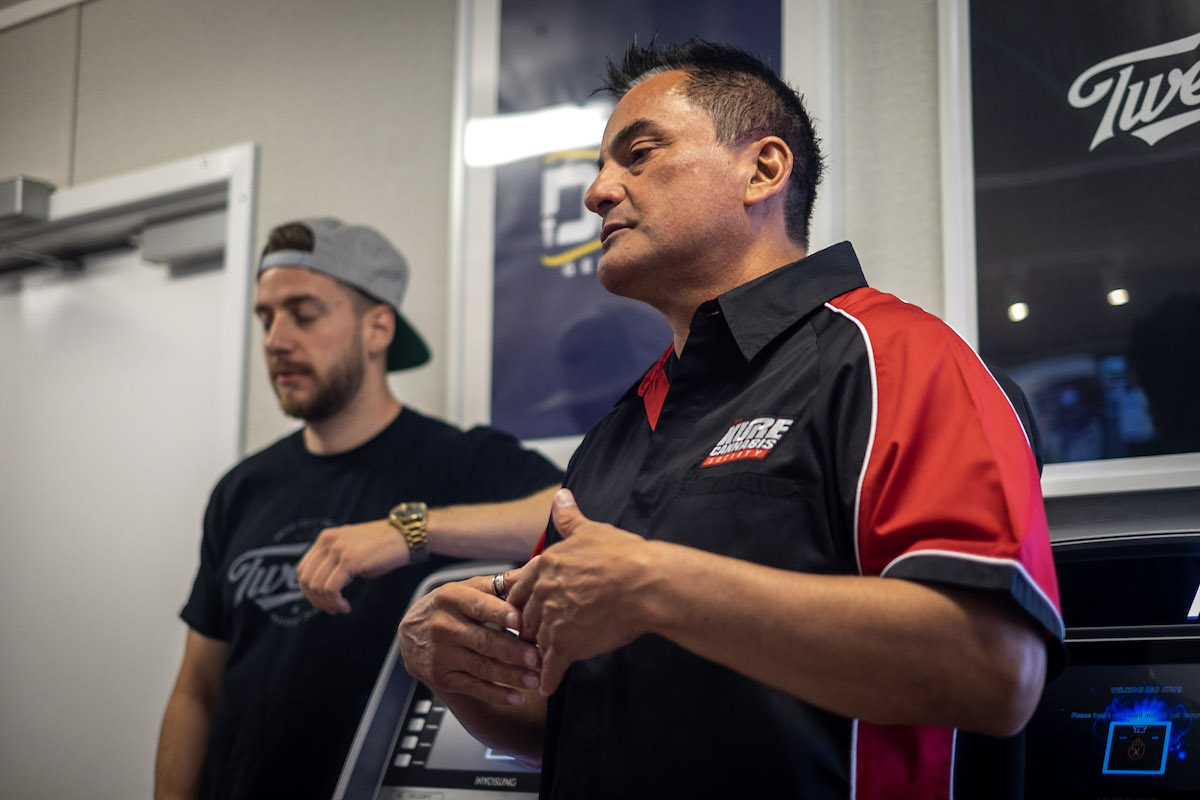
High excitement, low staff
While the shop was temporarily closed for setup and staff training, many past customers regularly inquired about when the shop would be open again.
“In the time that we were setting up and training, we would have 25 people come here per day that were asking if we were open,” said David Jones, a staff member at the Kure Cannabis Society.
The enthusiasm was also evident online, where comments on the shop’s Facebook page demonstrated an audience of customers awaiting the store’s re-opening date.
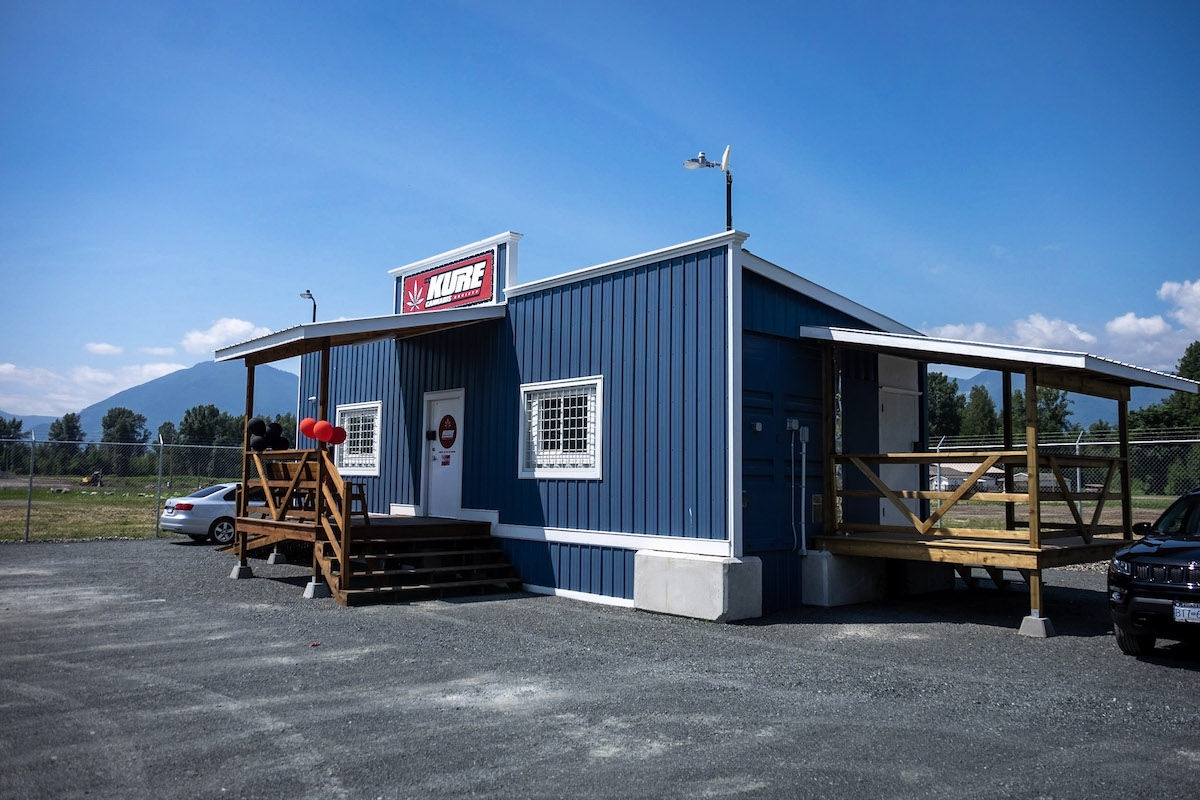
The soft opening of the store at 1 p.m. on June 21 was met with a line of people waiting to enter the store, and a flow of new and returning customers continued during the day.
The owners want to be open from 9 a.m. to 9 p.m. daily, but have delayed those plans thanks to a shortage of staff as employees wait to receive security clearance from the provincial government.
“The security screening has been a process because it’s taken so long for everybody’s security to pass through. We’re still short-staffed because of that. That’s why we’re opening with shorter hours,” Carrie said.
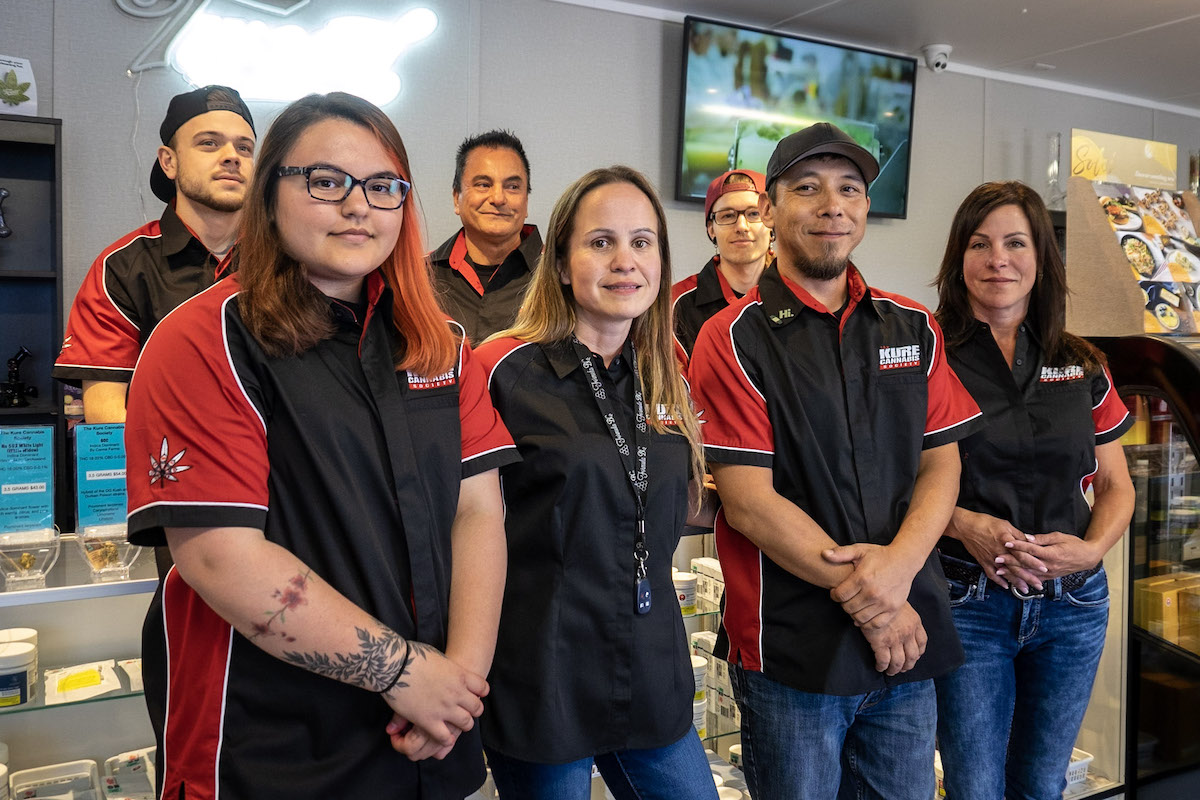
The Liquor and Cannabis Regulation Branch requires that all workers in a cannabis retail store pass a security verification screening, which has a $100 application fee per worker. Once passed, the worker receives a verification letter that must be shown to inspectors.
The Kure Cannabis Society currently has six staff members but hopes to have 10 by its grand opening on July 1.
“We need to have more people who can work here,” Adam said.
The shop first opened in May 2018 as a cannabis retailer and closed on Oct. 15 that year. In July 2018 it was raided by the RCMP and temporarily closed, but re-opened soon after.
‘High grade’
During a tour of the shop, Jones showed The Tyee the dried cannabis, oil capsules and sprays, and cannabis accessories available for purchase. Cannabis edibles, a popular form of cannabis consumption not yet federally approved for legal supply, were not available.
In the transition to the legal retail space, the Kure Cannabis Society must source all its products from the federal government’s directory of legal suppliers. All non-medical cannabis supply orders must be made directly through the Liquor Distribution Branch, with the exception of accessories.
“Everything comes from the government. It’s all pre-packaged. It’s all vacuum-sealed. Everything that you get will be high grade. It is high grade, despite what other people say,” Carrie said.
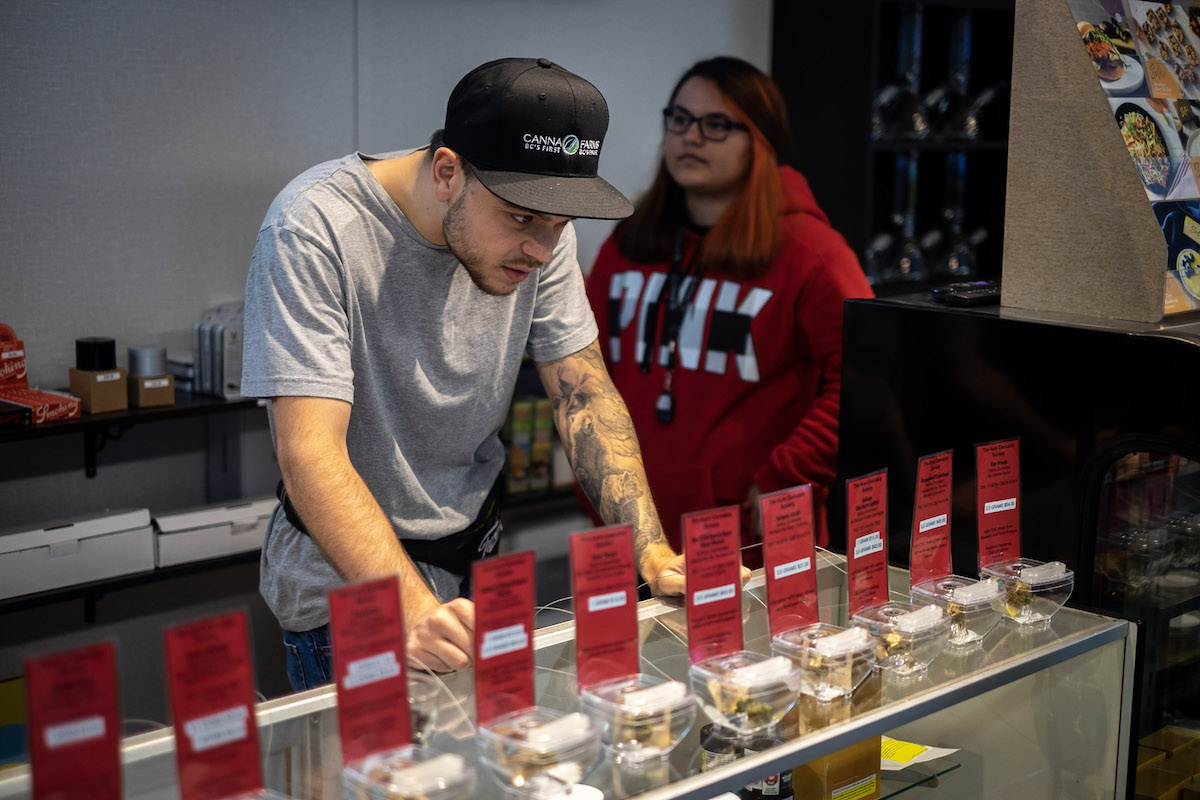
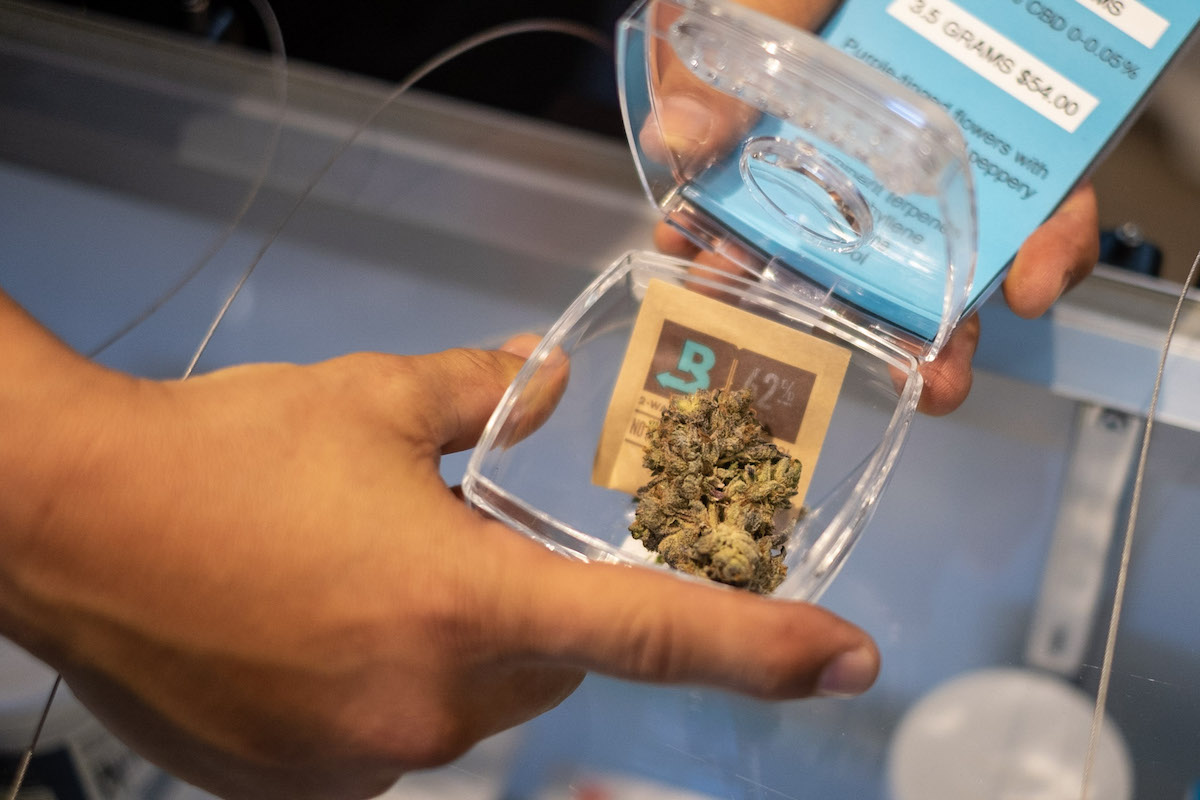
On opening day, one customer inquired about cannabis-infused gummies, but was disappointed to find out that they were not for sale. Before exiting the store, she suggested a nearby, non-licensed cannabis retail shop was selling non-regulated gummies.
Her concern echoed many of the ongoing concerns surrounding the price, quality, and availability of legal cannabis products from the federal government.
Carrie acknowledged the concerns but defended the quality of legal cannabis.
“When you buy your product from us now, you will never have anything that has a chemical on it, a pesticide. You will never have a mold spore or bug,” she said.
She said pre-measured products encourage customers to consume cannabis safely due to the known measurements and weights.
“Every pump on a spray, every capsule, is an exact measurement. So you definitely know what you’re getting and how to take it,” Carrie said. “It’s not as cute and flavourful, but it’s good. It’s really good.”
Staff and customers at the Kure Cannabis Society also don’t have to worry about encounters with police.
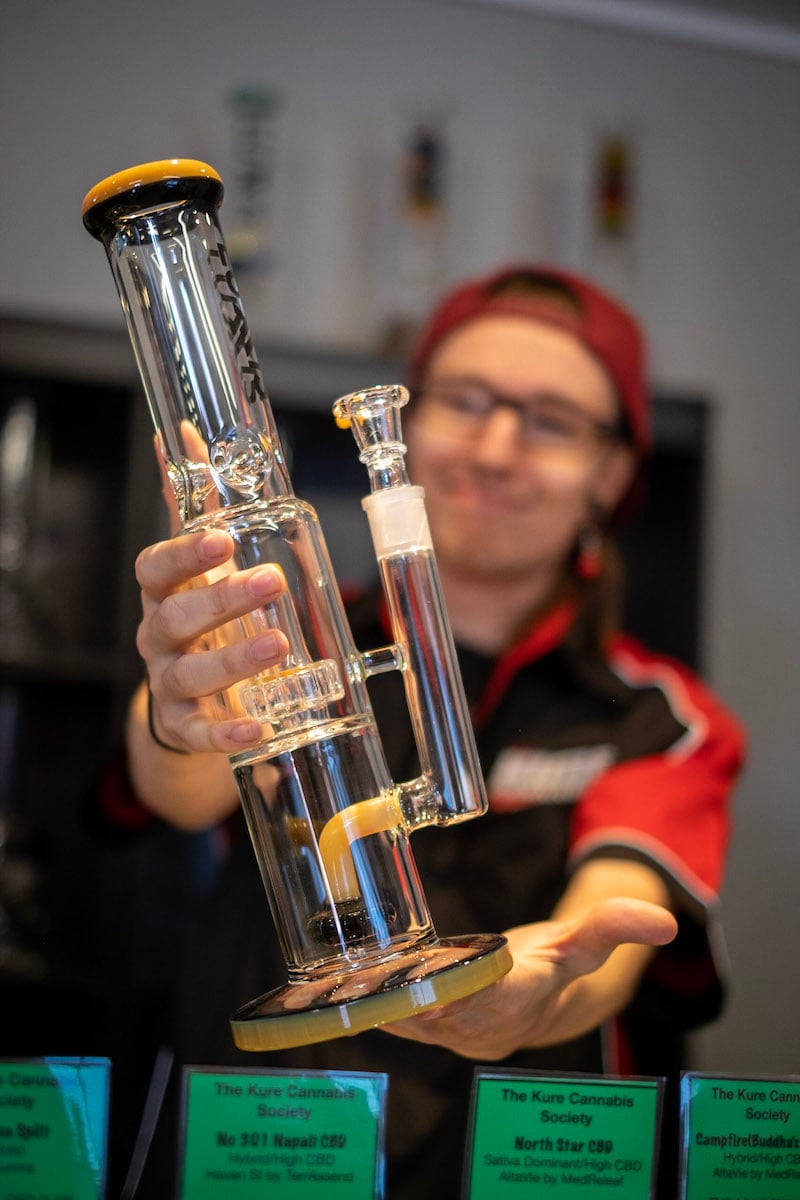
“People have to realize that this is the way we can legally use and consume cannabis in Canada without being prosecuted,” Jones said.
Budding opportunities
Since receiving the licence, Adam has received phone calls from Indigenous chiefs across the province expressing interest in legal cannabis licensing.
He hopes to turn his business into a chain and has potential business opportunities to expand into Hope, Chilliwack, Vancouver and Whistler. For him and Carrie, operating legally isn’t a question.
“If you’re running illegally and you got busted and charged, well there goes your freedom for travel and all sorts of things,” Carrie said.
“So why would you want to do that to yourself and your family and your employees?” ![]()
Read more: Indigenous, Local Economy, Rights + Justice, BC Politics



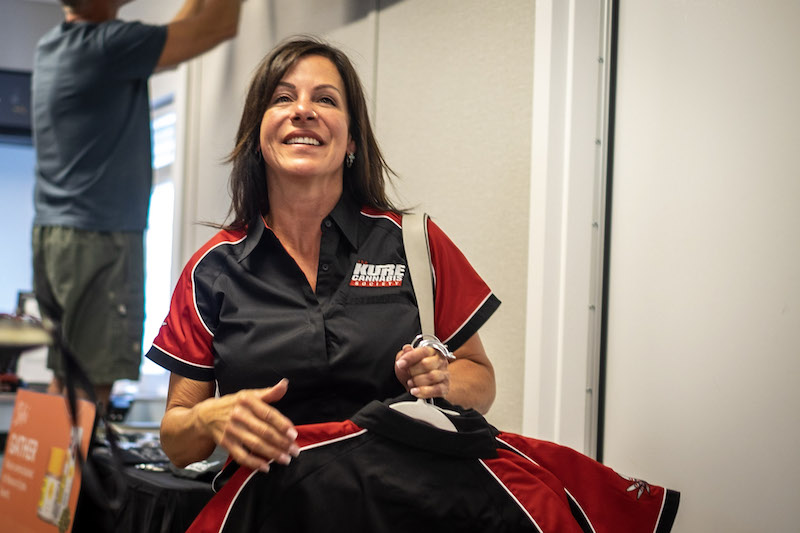












Tyee Commenting Guidelines
Comments that violate guidelines risk being deleted, and violations may result in a temporary or permanent user ban. Maintain the spirit of good conversation to stay in the discussion.
*Please note The Tyee is not a forum for spreading misinformation about COVID-19, denying its existence or minimizing its risk to public health.
Do:
Do not: